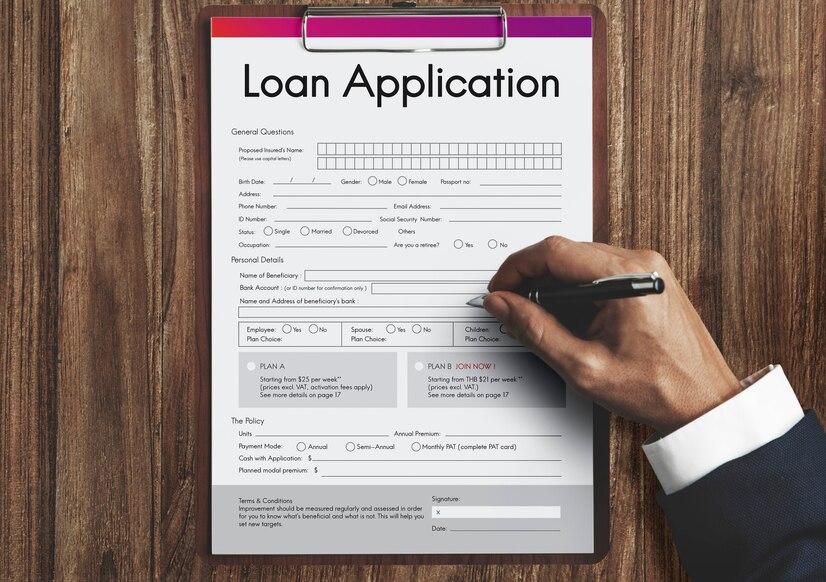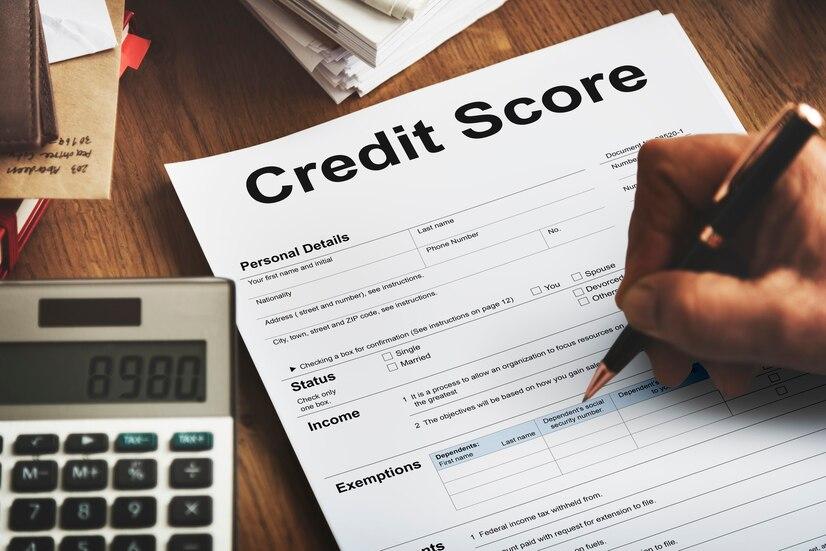

Table of Contents
- Introduction
- Definition of Collateral Loans
- Features of Collateral Loans
- Types of Collateral
- Benefits of Collateral Loans
- Risks Associated with Collateral Loans
- Application Process for Collateral Loans
- Positive Impacts of Collateral Loans on Credit Scores
- Negative Impacts on Credit Scores
- Conclusion
- Faq's
Introduction
Collateral loans play a vital role in the Indian financial ecosystem, allowing borrowers to obtain funds by pledging assets as security. This type of loan is particularly important for individuals and businesses that may not have a strong credit history or sufficient income to qualify for unsecured loans. By offering collateral, such as real estate, vehicles, or gold borrowers can enhance their chances of securing financing.
This article will explore the various aspects of collateral loans in detail. We will define what collateral loans are, outline their key features, and discuss the different types available. Additionally, we will examine the benefits and risks associated with these loans, as well as the application process involved. Understanding these elements is essential for anyone considering a collateral loan, as it can significantly impact their financial situation and credit score.
Whether you are looking to fund a personal project or expand your business, this guide will provide valuable insights into how collateral loans function in India.
Definition of Collateral Loans
A collateral loan, also known as a secured loan, is a financial arrangement where a borrower pledges an asset as collateral to obtain a loan. This collateral acts as security for the lender; if the borrower defaults on repayment, the lender has the legal right to seize and liquidate the collateral to recover the outstanding debt. This arrangement significantly reduces the lender's risk compared to unsecured loans.
In India, collateral loans are commonly used by individuals and businesses alike. They can be particularly beneficial for those who may have limited credit history or lower credit scores. By providing collateral, borrowers demonstrate their commitment to repaying the loan, which can enhance their chances of approval. The collateral itself can take various forms, including real estate, vehicles, gold, and financial assets. The amount that can be borrowed typically depends on the appraised value of the collateral, allowing borrowers to access larger sums than they might qualify for with unsecured loans.
 What is a Collateral Loan?
What is a Collateral Loan?
Features of Collateral Loans
Collateral loans come with distinct features that make them appealing to both borrowers and lenders. One of the most notable features is their secured nature; since these loans require borrowers to pledge an asset as security, they inherently carry less risk for lenders. This security allows lenders to offer higher loan amounts compared to unsecured loans, which are based solely on creditworthiness.
Additionally, collateral loans usually have lower interest rates than unsecured options. The risk mitigation afforded by collateral means that lenders can afford to charge less in interest, making these loans more cost-effective for borrowers. Furthermore, many lenders provide flexible repayment terms, allowing borrowers to choose a schedule that aligns with their financial capabilities.
Another important feature is the easier approval process associated with collateral loans.
Lenders may prioritise collateral-backed applications over unsecured ones due to reduced risk. This streamlined process makes it easier for individuals with varying credit histories to secure funding when needed.
Types of Collateral
In India, various types of assets can be used as collateral for loans, each with its own implications for loan terms and conditions.
Real Estate: Residential or commercial properties are among the most commonly pledged assets. The loan amount is generally determined based on the property's market value and location. Real estate-backed loans often have lower interest rates due to their stable value.
Vehicles: Cars and motorcycles can also serve as collateral. Lenders assess the vehicle's make, model, age, and condition before determining its value and setting loan terms.
Gold: Gold jewelry and bullion are popular forms of collateral due to their intrinsic value. Loans against gold typically offer lower interest rates and quick processing times.
Personal Investments: Stocks, bonds, mutual funds, and fixed deposits can also be pledged as collateral. The interest rates vary based on market conditions and asset types.
Business Assets: For business loans, equipment, inventory, accounts receivable, and other business-related assets can be used as collateral.
Understanding these types helps borrowers choose suitable assets based on their financial needs.
Benefits of Collateral Loans
Collateral loans offer numerous advantages that make them an attractive option for many borrowers in India.
- One significant benefit is access to larger funds; because these loans are secured by valuable assets, lenders are often willing to extend larger amounts than they would for unsecured loans. This feature is particularly beneficial for businesses looking to expand or individuals needing substantial funds for personal projects.
- Another advantage is lower interest rates compared to unsecured borrowing options. The presence of collateral reduces risk for lenders; thus they can afford to offer more favorable interest rates, making borrowing more affordable in the long run.
- Moreover, many lenders provide flexible repayment terms, allowing borrowers to tailor their payment schedules according to their cash flow situation. This flexibility can ease financial pressure during repayment periods.
- Lastly, the application process for collateral loans is often quicker than that for unsecured loans due to reduced risk assessments by lenders. Borrowers may find that they receive funds faster when using collateral than when relying solely on credit scores or income verification.
Risks Associated with Collateral Loans
While collateral loans have numerous benefits, they also come with inherent risks that potential borrowers should consider carefully before proceeding.
- One primary risk is the potential loss of the pledged asset; if a borrower defaults on repayment obligations, they may lose ownership of valuable items such as property or vehicles used as collateral. This loss can have significant long-term consequences for both personal finances and overall well-being.
- Additionally, market fluctuations pose another risk; the value of pledged assets may decrease over time due to economic conditions or changes in demand. If this occurs significantly enough during the loan term, borrowers could find themselves in a situation where they owe more than their asset's current worth.
- Moreover, there's a risk of falling into a debt cycle if borrowers take on more loans than they can manage comfortably. This situation could lead them into a spiral of borrowing against new assets just to repay existing debts an unsustainable financial strategy that could jeopardize future stability.
Application Process for Collateral Loans
The application process for securing a collateral loan involves several structured steps designed to ensure both borrower and lender interests are protected effectively:
 Loan Application Process For Collateral Loans in India
Loan Application Process For Collateral Loans in India
Assess Your Creditworthiness: Before applying for a loan, it's essential for potential borrowers to check their credit scores through authorized credit bureaus like CIBIL or Experian in India. A higher score not only increases chances of approval but also enhances eligibility for better terms.
Choose Your Collateral: Decide which asset you will pledge based on its value and liquidity consider how quickly it could be sold if necessary.
Research Lenders: Take time to compare offers from various banks and non-banking financial companies (NBFCs). Look at interest rates, processing fees, and repayment options available across different institutions.
Complete the Application: Fill out the lender's application form accurately while submitting necessary documents proving ownership and value of the chosen collateral.
Collateral Appraisal: The lender will evaluate your asset's value through an appraisal process involving physical inspections or third-party evaluations.
Loan Approval and Terms Agreement: After appraisal and verification processes are complete, review all terms carefully before signing any agreements ensure you understand your obligations clearly.
Collateral Pledge and Disbursement: Upon agreement completion and signing off on all necessary documents regarding your asset pledge; funds will then be disbursed according to agreed-upon terms.
Collateral loans can significantly impact credit scores in various ways, both positively and negatively. Understanding these effects is crucial for borrowers considering this type of financing.
Positive Impacts of Collateral Loans on Credit Scores
Positive Impacts on Credit Scores
Collateral loans can potentially improve a borrower's credit score over time. When an individual takes out a secured loan and makes timely payments, it reflects positively on their credit history. Payment history is a critical factor in credit scoring models, accounting for approximately 35% of the FICO score. Consistent, on-time payments demonstrate responsible credit management, which can enhance the overall score.
Additionally, taking out a collateral loan may help individuals with limited or poor credit histories gain access to financing options that they might not qualify for otherwise. By providing collateral, borrowers reduce the lender's risk, making it more likely that they will be approved for the loan. This opportunity can help those looking to rebuild their credit by establishing a positive payment history with a new type of credit.
Moreover, if the collateral loan is used to consolidate higher-interest debts, it can lead to lower monthly payments and better financial management, further supporting a healthier credit profile.
Also Read: Preferential Loan Term Meaning in Real Estate - Guide
Negative Impacts on Credit Scores
 Negative Impact On Credit Score
Negative Impact On Credit Score
Conversely, collateral loans also carry risks that can adversely affect credit scores. The most significant risk arises if the borrower defaults on the loan. Defaulting on a secured loan has consequences similar to those of any other type of credit default; it can lead to a significant drop in the borrower's credit score. This is because missed payments will be reported to credit bureaus, and the lender may repossess the collateral asset.
The negative mark from defaulting can remain on a credit report for up to seven years, severely impacting future borrowing opportunities. Furthermore, when applying for a collateral loan, lenders often perform hard inquiries on the borrower's credit report. Multiple hard inquiries within a short period can lower the credit score temporarily, making it essential for borrowers to space out their applications if they are shopping around for the best rates.
In summary, collateral loans have complex effects on credit scores. While they offer opportunities for improving credit through responsible repayment behavior, they also pose risks that can lead to significant negative impacts if not managed properly. Borrowers should weigh these factors carefully and consider their financial situations before committing to a secured loan. By understanding both the potential benefits and pitfalls, individuals can make informed decisions that align with their long-term financial goals.
Conclusion
Collateral loans represent a crucial avenue for financing in India by providing borrowers access to larger amounts at lower interest rates while mitigating risks for lenders through secured assets pledging mechanisms involved in these transactions effectively balance interests between both parties involved within this lending framework overall offering significant benefits when managed responsibly by informed consumers seeking viable funding solutions tailored toward individual needs or business objectives alike!
As financial institutions continue innovating within this space collateralised lending practices will remain essential tools facilitating personal aspirations alongside entrepreneurial ambitions throughout India's dynamic economic landscape moving forward.
explore further
Latest from Editorials
More from Publications
Resources
Dwello, for every home buyer, is a way to go from 'I feel' to 'I know', at no extra cost.


